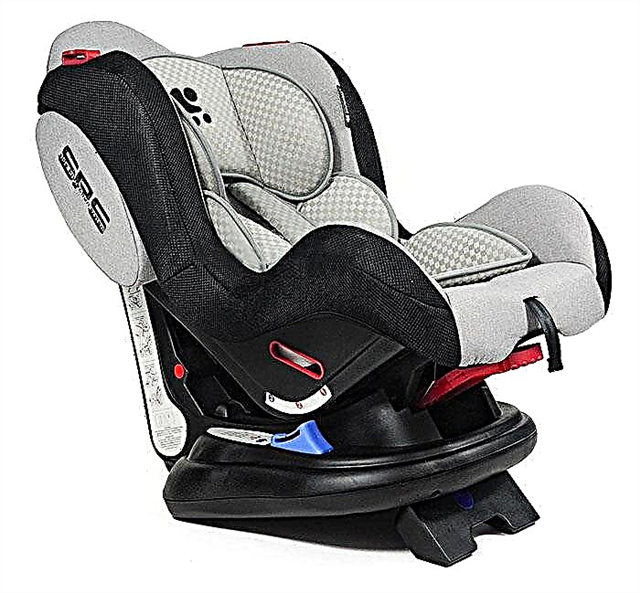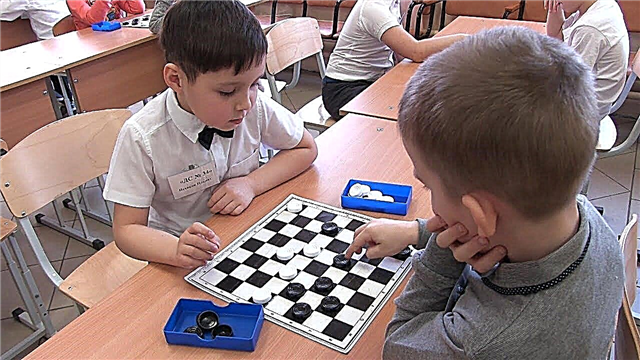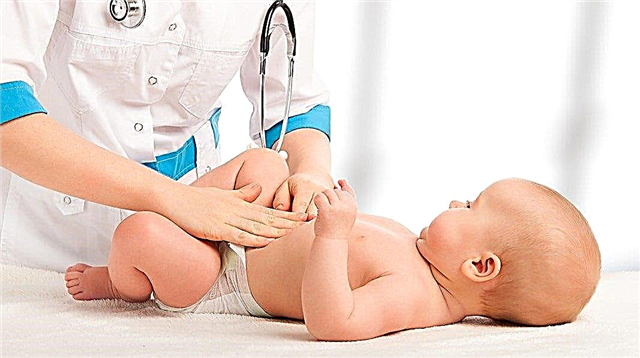
Children are vulnerable and impressionable creatures, and therefore it is not surprising that they are more emotionally experiencing certain situations. Where an adult steps over and forgets, the child will worry for a long time, returning again and again to an incomprehensible or unpleasant moment for him. Since young children are unable to express the full range of their emotions in words, they can begin to manifest them on a physical level. And now the child develops a habit of pinching his ear, blinking often, biting his fingers. The famous doctor Evgeny Komarovsky talks about how to treat such oddities in a child's behavior and whether it can be treated with something. Obsessive-compulsive movement syndrome in children is a problem that many face.

What it is?
Obsessive-compulsive movement syndrome in children is a complex of psycho-emotional disorders that arise under the influence of emotional shock, strong fear, fright, stress. The syndrome manifests itself as a series of unmotivated movements - of the same type or turning into more complex ones.
Most often, parents complain that their child suddenly began:
- biting nails and the skin around the nails;
- grinding your teeth;
- shake your head from side to side;
- swing the whole body for no apparent reason;
- wave or shake hands;
- pinching your ears, hands, cheeks, chin, nose;
- bite your own lips;
- blink and squint for no reason;
- pulling out your own hair or constantly twirling it around your finger.
The manifestations of the syndrome may be different, but the disease can be talked about when the child repeats a series of movements or one movement often, especially in situations where he begins to worry or feel uncomfortable.


The factors that can trigger the onset of obsessive-compulsive movement syndrome are numerous:
- severe stress;
- long stay in a psychologically unfavorable environment;
- total mistakes in education - connivance or excessive severity;
- attention deficit;
- changes in the usual life - moving, changing kindergarten, departure of parents and their long absence.

For the child himself, all these manifestations may not cause any inconvenience at all - unless, of course, he injures himself.
It is noteworthy that obsessive-compulsive movement syndrome is recognized by doctors as a disease, it has its own number in the International Classification of Diseases (ICD-10), the disorder is classified as neurotic, caused by stressful situations, and also somatoform. However, doctors did not have and do not have a single standard for diagnosing this disease. In other words, the child will be diagnosed only on the basis of the parents' complaints and the symptoms they describe.
There is also no standard for the treatment of obsessive-compulsive disorder - it all depends on a specific neurologist, who can recommend a sedative drink and visit a psychologist, or can prescribe a whole bunch of medications, vitamins - and necessarily a rather expensive massage (of course, from his familiar masseuse).
If the involuntary movements of the child are caused by a specific reason, then with a high degree of probability the syndrome will pass on its own, without any treatment. It's just that the child needs time to get rid of the worries. However, it can also be a sign of more anxious conditions.

What should parents do?
The neurosis of obsessive movements and states, according to Evgeny Komarovsky, is a manifestation of inappropriate behavior. It necessarily forces parents to seek medical advice, since it is very difficult to independently figure out what is happening - a temporary psychological disorder or a persistent mental illness.
Yevgeny Komarovsky, when inadequate symptoms appear, advises parents to think carefully about what preceded this - whether there were conflicts in the family, in the children's team, was the baby sick with something, did he take any medications. If I did, then do these tablets or mixtures have side effects in the form of disorders from the central nervous system.

There is always an explanation for temporary stress syndrome, it always has a cause.
But mental illness most often may not have a cause. If nothing changed, did not hurt, the child did not take any medications, he did not have a temperature, he ate well and slept, and in the morning he shakes his head from side to side, frowns, blinks and squints, tries to hide, run away, shakes his hands without a break for an hour already is, of course, a reason for contacting a child neurologist, and then a child psychiatrist.
The problem is, says Komarovsky, that parents are embarrassed to see a specialist such as a psychiatrist. This is a big misconception. Negative attitudes towards doctors who help solve behavior problems need to be revised as soon as possible.
A son or daughter can reach in their nervous manifestations to conditions that can threaten life and health. If there is a risk of self-harm, the child with his movements is capable of causing himself serious harm, Komarovsky advises to consult a specialist in order to exclude the presence of psychiatric disorders and receive recommendations on how to get out of this situation.

What cannot be done?
You should not focus on obsessive movements - and even more so try to forbid the child from making them. He makes them unconsciously (or almost unconsciously), and therefore it is impossible in principle to prohibit them, but it is easy to aggravate an emotional violation by prohibitions. It is better to distract the child, ask him to do something, help, go somewhere together.
You can't raise your voice and shout at a child at the moment when he begins a series of unmotivated movements, says Komarovsky. The reaction of the parents should be calm, adequate so as not to frighten the child even more.
It is best to continue talking to the baby in a quiet, calm voice, in short sentences, not to argue with him, in no case to leave him alone. You should also not look your baby directly in the eyes.
It is also impossible to ignore the problem, because the child really needs to talk to him, discuss his problem. In the end, these new "bad" habits also cause confusion and fright in him. Sometimes it is confidential communication that helps to get rid of the problem.

Treatment
With a high degree of probability, a neurologist, to whom parents come for an appointment with complaints of obsessive movements in a child, will prescribe one or more sedatives, magnesium preparations, and also vitamin complexes. He will strongly recommend visiting massage, exercise therapy, swimming pool and salt caving chamber. The treatment will cost the family a pretty round sum (even with the most rough estimates).
Evgeny Komarovsky advises to think carefully when planning to start such treatment. If the psychiatrist did not find serious abnormalities, then the diagnosis of obsessive-compulsive movement syndrome should not become a reason to stuff the child with pills and injections. It is very likely that pharmaceuticals will not affect the healing process at all.


The very fact of their appointment is convenient for both the neurologist and the parents. After all, the doctor understands perfectly why the worried parents came to him - for treatment. And he appoints him, which means that parents will not go to complain about a specialist who turned out to be so inattentive that he "did not prescribe anything at all." Parents believe that there are magic pills that will solve all problems in a few steps.
There are no such pills, says Komarovsky. But there are other, more effective ways to help a child get rid of a neurosis - this is the love of mom and dad, patience, time and participation. If parents make it a rule to walk with their child every day, discuss films and books that they watched and read together, if favorable emotional conditions are created at home, then all obsessive states and movements that so worried his relatives will disappear rather quickly. It will be great if mom and dad find a good child psychologist who will help them normalize the condition of their son or daughter.

In the next video, Dr. Komarovsky talks about ways to combat bad habits in children.



